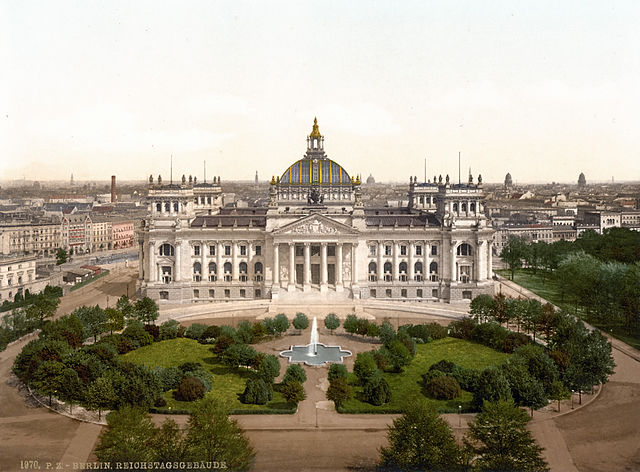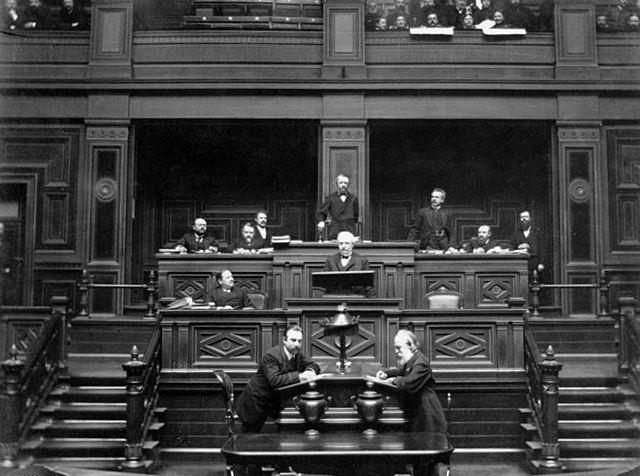Karl Paul August Friedrich Liebknecht was a German socialist and anti-militarist. A member of the Social Democratic Party of Germany (SPD) beginning in 1900, he was one of its deputies in the Reichstag from 1912 to 1916, where he represented the left-revolutionary wing of the party. In 1916 he was expelled from the SPD's parliamentary group for his opposition to the Burgfriedenspolitik, the political truce between all parties in the Reichstag while the war lasted. He twice spent time in prison, first for writing an anti-militarism pamphlet in 1907 and then for his role in a 1916 antiwar demonstration. He was released from the second under a general amnesty three weeks before the end of the First World War.
Karl Liebknecht, c. 1911
Sophie and Karl Liebknecht with the children from his first marriage
Rosa Luxemburg
Liebknecht speaking at a rally in the Berlin Tiergarten
Reichstag (German Empire)
The Reichstag of the German Empire was Germany's lower House of Parliament from 1871 to 1918. Within the governmental structure of the Reich, it represented the national and democratic element alongside the federalism of the Bundesrat and the monarchic and bureaucratic element of the executive, embodied in the Reich chancellor. Together with the Bundesrat, the Reichstag had legislative power and shared in decision-making on the budget. It also had certain rights of control over the executive branch and could engage the public through its debates. The emperor had little political power, and over time the position of the Reichstag strengthened with respect to both the imperial government and the Bundesrat.
Reichstag (German Empire)
The Reichstag's new building as of 1894
Speaker's platform, presidium and stenographers
Otto von Bismarck








